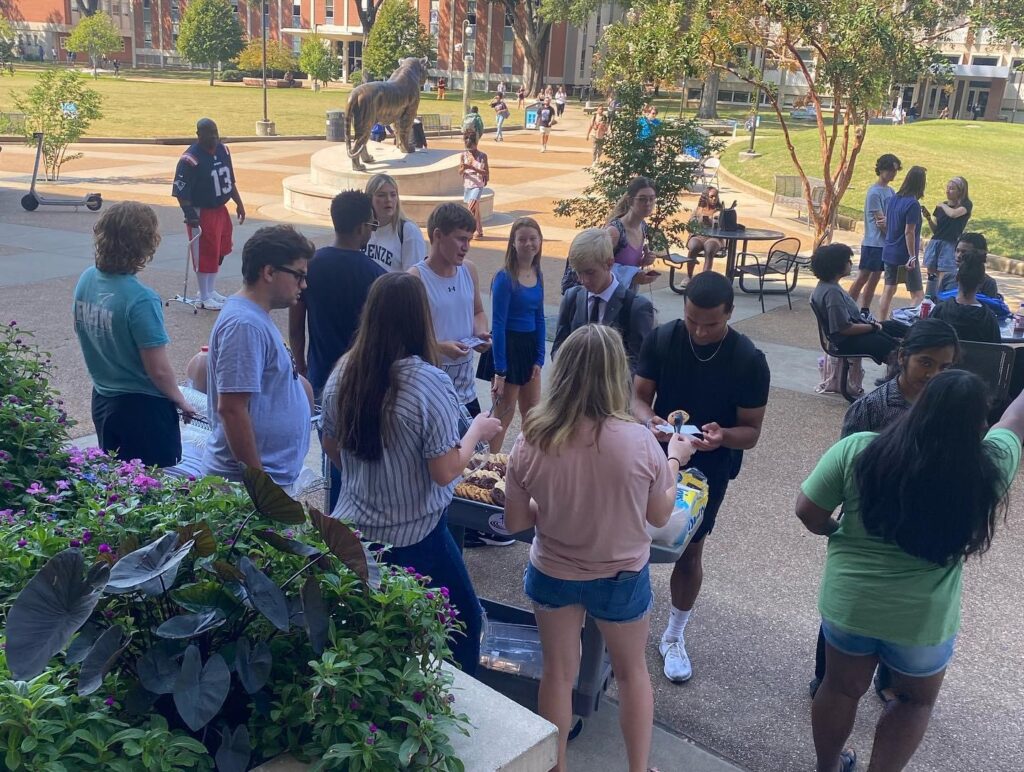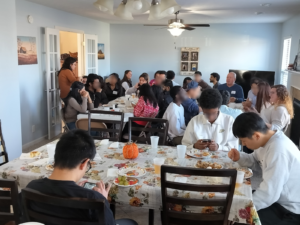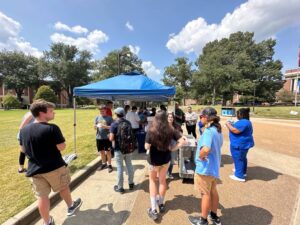Developing the Vision in Our Students and Congregation
In today’s fast-paced world, the need for clarity and engagement in our communities has never been more important. Whether we are speaking to our students or our congregation, establishing a strong vision is paramount for fostering genuine participation and growth.
The Importance of Developing the Vision
To effectively engage our students and congregations, we must illustrate what they are joining in on. The first step in this process is to articulate a compelling vision. In our organization, Launch Campus Ministry, we have specific teams assigned to different aspects of our organization. Initially the team we had set aside to engage with international students was titled the “International Team.” The name of the team inadvertently conveyed a message that excluded many who might have participated. We learned this lesson through trial and error, transitioning to the more descriptive “Cross-Cultural Team.” This change not only clarified our purpose but also highlighted our mission to foster cross-cultural friendships rather than simply existing for only international students.
For a vision statement to resonate, it needs to be clear and simple. Overcomplicating our messaging can lead to confusion and disengagement. For example, one straightforward vision statement could be “Reaching students from all cultures.” This simple phrasing encompasses our goal without adding unnecessary complexity.
Each group—whether it consists of students or members of a congregation—will possess a unique “DNA” that affects outreach efforts. This diversity should be embraced rather than avoided. For instance, our students on our campus identify with a certain culture; they are typically more “nerdy” than athletic. Thus, reaching out through sporting events may not be the most effective strategy. It is vital to assess the specific attributes of our international student body as well; for example, some Nigerian male students typically gravitate toward sports like soccer, while a lot of Bangladeshi female students often find joy in dressing up. Understanding these nuances not only allows us to tailor our outreach efforts but also equips us to engage meaningfully with those we serve.
Relationships Are Greater Than Events
While events can be a means of creating community, it is relationships that ultimately lead to impactful Gospel interactions and a fruitful community. Therefore, our vision should serve as a foundation for building these vital interactions. By prioritizing relationships over mere programming, we can create an environment where individuals feel valued and connected. The trust built within these relationships will allow the Gospel to be received with freedom.
To facilitate this, we encourage idea-sharing conversations among our group members that can guide training and engagement efforts. These discussions can help us identify practical challenges and obstacles that may inhibit relationship-building with those we are inviting to join us. From there, we can work together on solutions while ensuring that our efforts remain grounded in shared purpose. To avoid these discussions, unity among the group will be impossible.
Practical Challenges and Obstacles
Navigating the landscape of outreach and engagement can present specific hurdles. You may have different schedules than the students you are trying to reach? Strive to be flexible. Be willing to take advantage of small increments of time. Even making yourself available via texting or phone conversations can build open communications.
You may struggle to find common ground? There is always common ground to be found. One way to begin conversations is with the two-handed approach (FFFFF & WWWWW)- family, friends, future, festivals, family & who, what, when, where, why. Any combination of an “F” and a “W” are simple ways to begin and sustain conversations.
Simply being a learner will show a person that you want to be a true friend.
Evangelism and Bible Study Ideas
As we engage our students and congregation, provide opportunities for evangelism training and spiritual growth. Some potential strategies might include:
- Creating Events that Facilitate Gospel Conversations: Design gatherings that encourage open dialogue about faith in a relaxed setting. Some examples include: movie nights with discussion questions, taking international students to church as observers, even weddings.
- Training and Engaging in “Raw” Street Evangelism: Approaches such as the “3 Circles” method can help prepare our community for real-world discussions about faith. Training on different religions and how to engage them with the Gospel.
When it comes to Bible studies, there are several engaging formats we can explore:
- Discovery Bible Studies (DBS): These studies allow participants to explore Scripture collectively and draw personal insights.
- Investigating Christianity: Our version spans the fundamental aspects of faith in an accessible way.
- Christianity 101: A foundational overview of the Christian faith.
- “What Do Christians Believe?”: This format invites questions and provides solid answers.
- “Story Friday”: A narrative-driven approach to sharing faith stories.
- Works by Lee Strobel: Titles like “Case for Christ” and “Case for Easter” offer investigative insights into Christianity.
Conclusion
In conclusion, developing a clear vision amongst our students and congregations is essential for fostering engagement and facilitating genuine friendships. By emphasizing relationships, understanding the unique attributes of each group, and providing practical strategies for outreach and spiritual training, we can effectively guide our groups toward a shared purpose: making disciples of Jesus.
Dennis Runner works at Purdue University as the International Team Minister for Launch Campus Ministry. You can learn more about the ministry at launchcampusministry.com.






